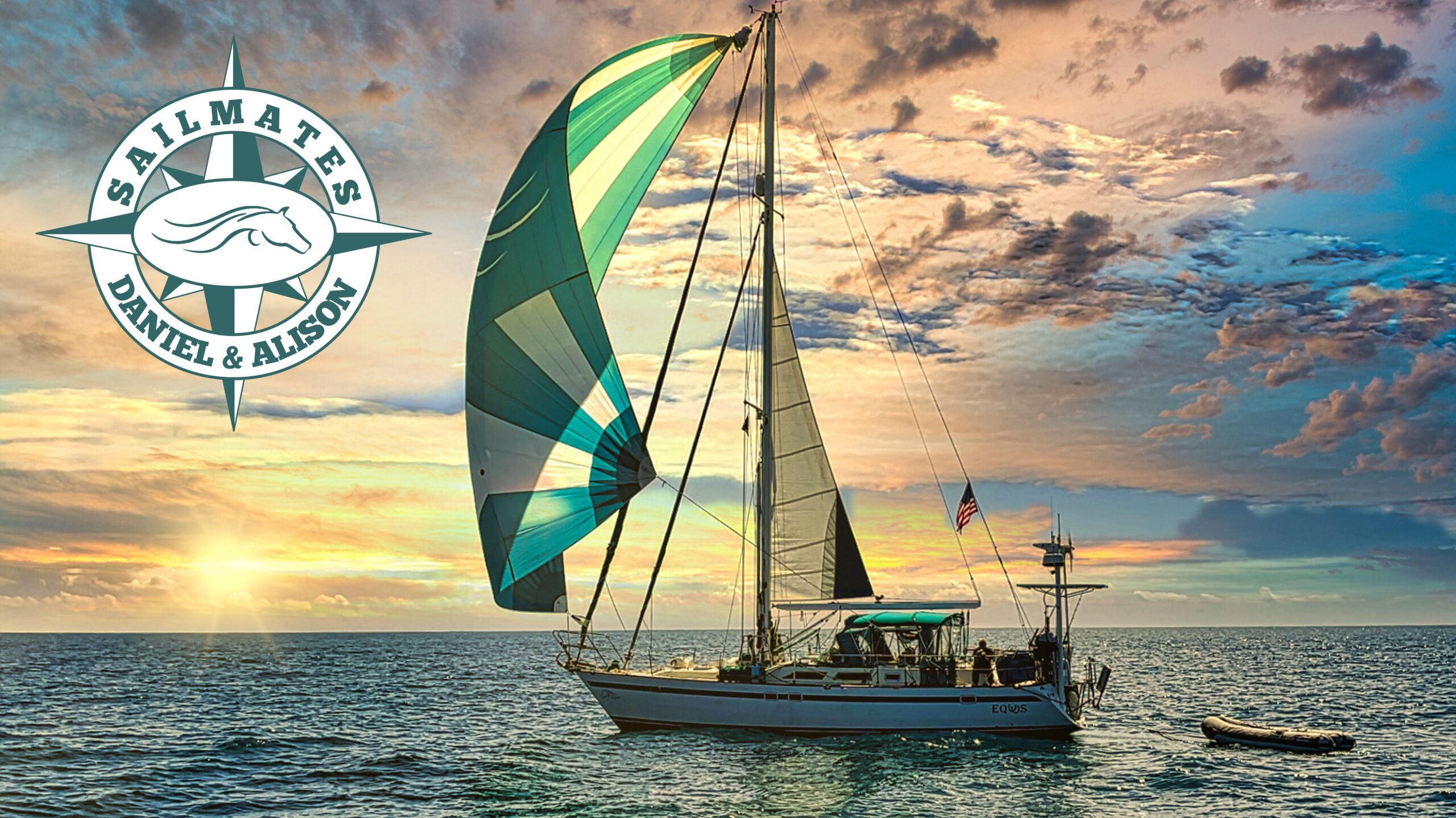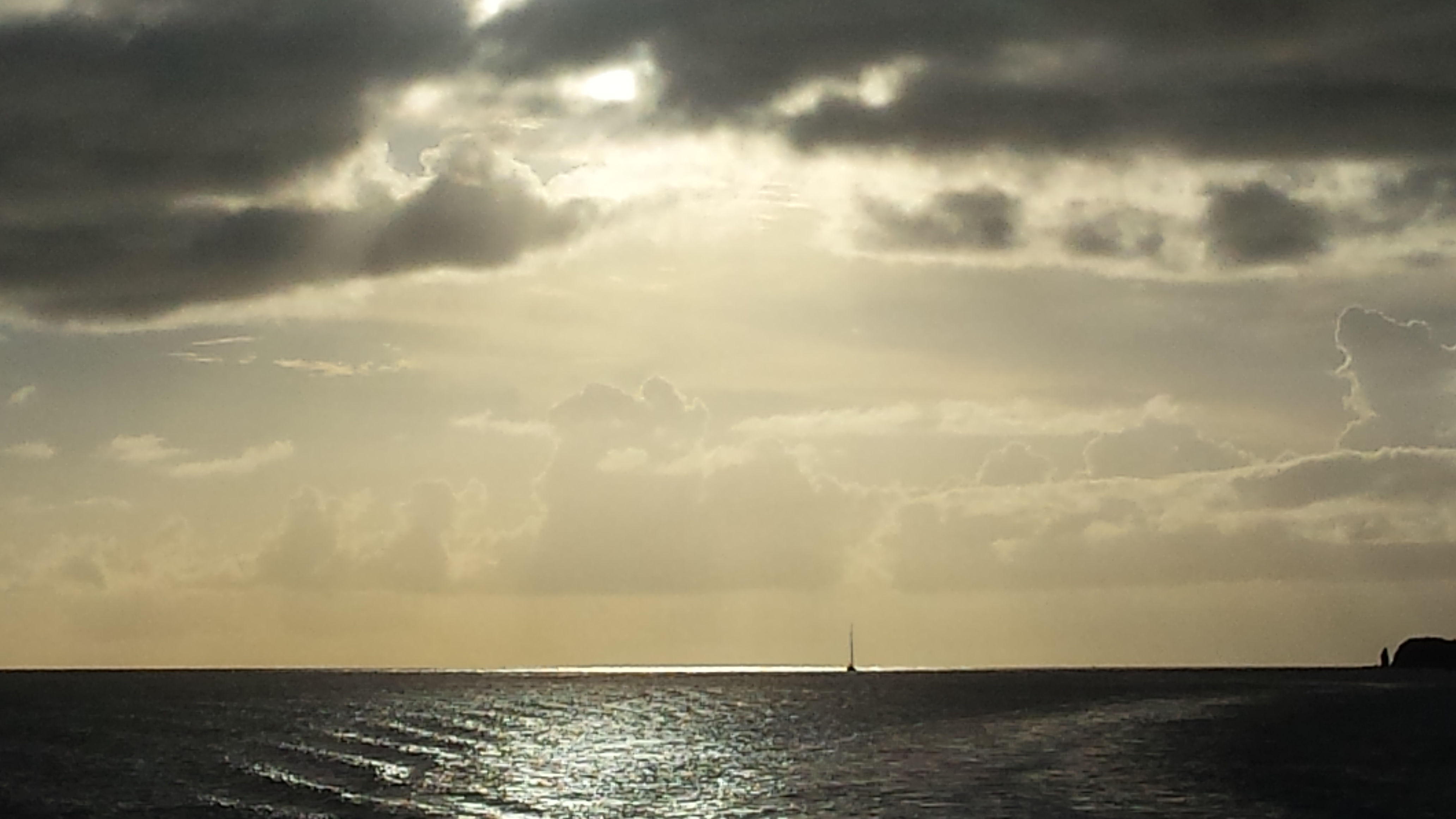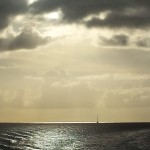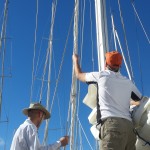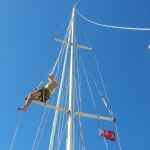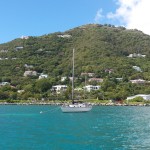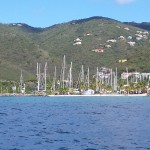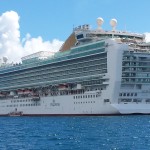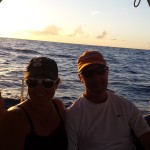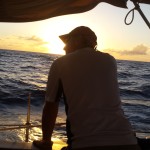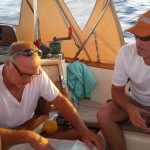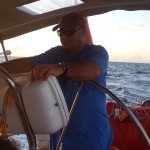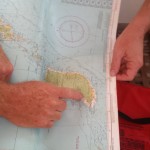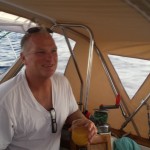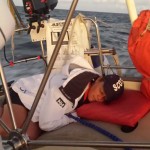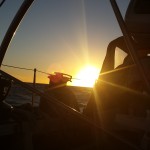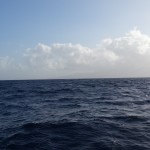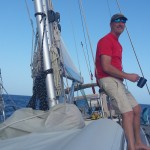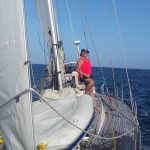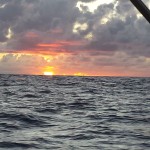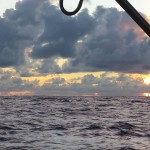John Kretschmer Passage – Part 2
“I really don’t know why it is that all of us are so committed to the sea, except I think it’s because in addition to the fact that the sea changes, and the light changes, and ships change, it’s because we all came from the sea. And it is an interesting biological fact that all of us have in our veins the exact same percentage of salt in our blood that exists in the ocean, and, therefore, we have salt in our blood, in our sweat, in our tears. We are tied to the ocean. And when we go back to the sea – whether it is to sail or to watch it – we are going back from whence we came. [Remarks at the Dinner for the America’s Cup Crews, September 14 1962]” ― John F. Kennedy
To date, my adventures in a sailboat have been confined to inland waterways, bays and sounds. The shore, never farther than a distant horizon, and a solid surface has been no more than a few meters beneath our keel. As our ferry approached the island of Tortola from St. Thomas, I knew that the realm of my experience was about to expand profoundly. For the first time, I would be aboard a sailboat, hundreds of miles from the nearest shore, with thousands of meters of water between me and the bottom of the sea. The test I was about to take was one that would determine if fear would surmount my dreams and desires to cross oceans alone on a boat with my husband or if my exhilaration for this lifestyle would overcome the difficult life at sea. I would be on the lookout for signs, little hints from God, destiny or fate that I am indeed, heading on the right path.
The ferry docked and Dan and I cleared customs for BVI and hailed a taxi to take us to Nanny Cay Marina where John Kretschmer, our captain and his 47ft. boat Quetzal, awaited. Four male crew members and John would accompany us on the 1,000 mile round trip, 420 some miles to Grenada and the Grenadines, and 400 some miles back. It would take us approximately 3 days to complete each of the 400 mile crossings, where I would get a taste of life on an ocean passage. When we arrived at the marina, the scent of aromatic flowers and sea air, greeted us. As I took my first step onto the dock and headed half way down to the slip where Quetzal lay in wait, I felt a bit like a time traveler. I was stepping into a new way of life, so foreign from the cold, snow, ice and farm animals I had left behind in New Jersey, into a nautical setting where boats, oceans and atmospheric conditions would now be the focus of my every waking moment.
Dan and I spotted Quetzal, nestled in her slip with a flurry of activity on board. John and the first two crew mates were in the cockpit, preparing for “Captain’s Hour”. Rum punch, meats and cheeses were being brought from below to celebrate the beginning of the voyage. The men quickly rose and greeted us as we approached to join them. I was in awe of the moment, the feeling of stepping aboard the vessel that would take me across the ocean, captained by a man who had successfully crossed the Atlantic 21 times. Introductions were made, we got a brief tour of the boat and we all settled down to toast our adventure. That is when John dropped the bombshell, the news that would shake the foundation of my sailing soul.
John began, “I don’t know if you guys have ever heard of Scott and Brittney, but they are docked a few boats down. I invited them to join us for Captain’s hour.” I had to grip the side of the boat with both hands to make sure the boat was really beneath me and that I was not imagining the moment. There was only one sailing blog, called Windtraveller, that I kept up with and followed for the past 4 years. That blog is written by a young lady named Brittney and is about her and her husband Scott’s decision to sell everything and become live aboard cruisers. On all the islands, in all the harbors, in all the marinas in those harbors, what was the chance that on the evening of my arrival to test my sailing merit, Scott and Brittney would be docked a few boats away. I would be in fact meeting them.
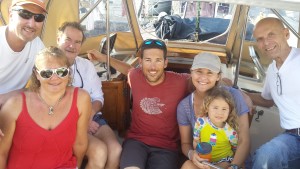
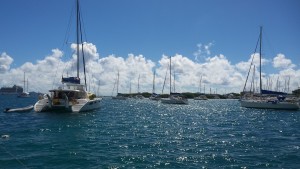
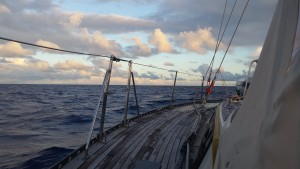
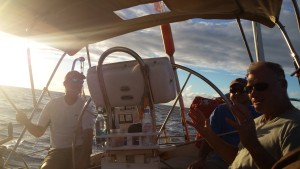
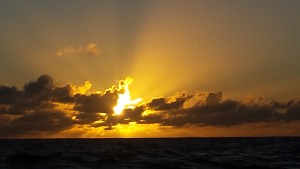
During the first few sailing hours of our first day at sea, John had carefully gone over the safety procedures . We discussed man overboard scenarios, sinking scenarios, and were each given a job in the unlikely event we had to abandon ship. The one cardinal rule while being on night watch was that each crew member had to wear a safety harness. That harness was also an inflatable device should we go overboard. In addition, we were tethered to the cockpit with a line that clipped to a ring that would prevent getting washed overboard or getting accidently flung out of the boat. When a sharp rap in our cabin signaled time for my first watch, I hurriedly popped out of bed, put on my lightweight jacket and secured my harness. Dan had beaten me to get ready and on deck. I followed shortly and emerged from the cabin into the crisp and brisk air of my first night at sea. The wind was fitful and dark clouds covered most of the sky. There was blackness to the night I had never encountered on land. My breath caught at the almost suffocating feeling of hurtling through the darkness at great speed, knowing we were but a speck, floating along on the surface of water that was thousands of feet deep. The boat’s autopilot was on and steering a true course, so our job as night watchmen was to ensure we stayed on course and that nothing perilous crossed out path.
I got my bearings and looked up into the sky. There was one clear patch. The clouds had parted like a giant curtain, previewing a small patch of heaven. In that patch, shining brightly above, was a familiar array of stars. I had to look twice to be sure it wasn’t a figment of my imagination, but on second look I knew for sure. The only visible stars I could see on that first night, on my first watch, was the constellation of Orion. Orion is the name of our first grandchild, born into our family on January 12th. Only a few weeks old, I thought of him as we left for the trip at 4 am only a few days prior. I had looked into the sky, seen Orion’s belt, and wondered what it would be like to see that constellation out at sea. What were the chances of the first stars I saw, on my first night watch, on my first night out at sea, to be Orion? I guess about as good as seeing my sailing idols the first night in the Caribbean.
Our watch flew by as I took in the marvels of galloping along in the dead of night, powerful, surefooted and without fear or hesitation. I had feared the unknown feeling of solitude that I thought would accompany a night watch, but solitude was not one of the emotions I felt that evening. There was a peacefulness in the sound of the wind and waves. There was a steadiness in the way the boat handled herself over waves my human eyes could not discern. There was a sense of empowerment in being a small vessel, in an immense ocean, and daring to tread across trusting that Neptune would let us pass. And before I knew it, the 3 hours has passed. Dan and I had not spoken much, just a few words because the magnitude of the evening was far greater than the words either of us could speak. Getting ready to descend the ladder back into the cabin to wake the next crew, I looked up into the sky one last time. Orion had moved on, progressing in the sky to a new vantage point, and a new constellation had taken his spot. I had to verify with Dan, but I was quite sure what I spotted was a constellation I was hoping to see as we delved closer to the Southern Hemisphere. It was one I had dreamt of, but had not yet seen. Bright in the sky, just above the horizon, was the Southern Cross. I smiled as Dan confirmed my guess, and I peered up at her, seeing the Southern Cross for the first time.
When you see the Southern Cross for the first time You understand now why you came this way ‘Cause the truth you might be runnin’ from is so small But it’s as big as the promise, the promise of a comin’ day – Crosby, Stills, Nash and Young
Luck? Coincidence? I don’t think so.

